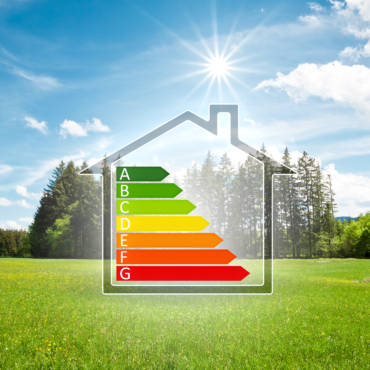Tips to Make Your Home More Energy Efficient

If we told you that you could spend less money on your electric bill, would you believe it? Well, it’s possible when you learn how to make your home energy efficient. To prevent unusually high electric bills, it’s important to properly maintain your systems and make sure your home is running as energy efficient as possible. Not only will it help you save on your electric bill, but you will be helping your planet be greener. Here are some energy saving tips we’ve compiled to help you stay comfortable in your home, while also saving you money:
Unplug It!
One of the biggest culprits of a high electric bill is leaving appliances or electronics plugged in when it is not being used. Most modern appliances and electronics still use power when the appliance or electronic is turned off, or simply not being used. Kitchen appliances such as stand-alone microwaves, toasters, blenders, and coffeemakers can be unplugged when not in use to save you on your electric bill. Additionally, keeping these small appliances unplugged when not in use is also recommended by the U.S Fire Administration to prevent fires. Other items that you can unplug to save on unnecessary electric usage when they are not in use are chargers for phones, desktop and laptop computers, stereos and radios, lamps, and any other gadget that you may have that does not need to be plugged in 24/7.
Weatherize for the Season
Most people only think about sealing up doors and windows in the colder months, but it is just as important in the hotter months to keep your air conditioning sealed in the home. An air leak in your home causes inefficiency in your HVAC system as cool air will be lost and not retained. Check over all windows and doors in your home for air leaks and seal as necessary. Leaks can be easily sealed with weatherstripping or silicone caulk. If anything is worn out you should remove, clean, and then replace with your new material. Replacing and sealing door sweeps, lock and hinge jambs can help further insulate your home as these are common places where air leaks out, especially in spaces like the basement or garage. And of course, it should go without saying that while the air conditioner is running, be sure to keep all windows and doors closed.
Make Fans and Blinds Work in Your Favor
The type of window curtains and/or shades you choose can have a big effect on your home’s HVAC workload. In cooler months, you can utilize the sun’s free warmth and light by keeping your curtains and shades open in windows where sun shines through. During the summer, you can keep curtains and shades closed to add an extra layer of protection. Reversible shades are perfect for all seasons; white on one side to let in light and warmth during the cooler months, and dark on the other end for hotter months to keep the sun completely out, all while giving you privacy whether you use the light or dark side of the shade. Purchasing thermal curtains also will help reduce light exposure and decrease energy lost through your windows. Similarly, reflective films for your windows can also be used to block heat from the sun in the hotter months and reduce heat loss in the colder months.
Light Bulbs
Why wouldn’t you want to light your home with the same amount of light for less money? With just a simple change as easy as changing a lightbulb, you can save on your electricity bill. The most popular energy efficient lightbulbs are halogen incandescent, compact fluorescent lamps (CFLs), and light emitting diodes (LEDs). These lightbulb options sometimes can cost more than the traditional incandescent bulbs, but during their lifetime they use less energy than the traditional bulbs and in turn save you money. If you have outdoor lights that are on for long periods of time, consider using CFLs or LEDs to save on energy.
Is your Fan Spinning in the Right Direction?
During warmer months, it’s best to have your ceiling fans rotating counterclockwise. This is because it will spin in a way where cooler air is being pushed down, thus making your air feel cooler than it actually is. In the winter, ceiling fans should be changed to rotate clockwise, set at the lowest fan speed. There are some exceptions to this rule, however. If you have a fan in your dining room, keep the ceiling fan running clockwise year-round to prevent the fan from cooling your food too quickly. If you have someone who smokes in the house, keeping the fan running clockwise will allow the smoke to go up and dissipate more quickly than if you had it rotating counterclockwise. For outdoor ceiling fans, you can help insect control by turning the fan on counterclockwise at a high speed to deter the insects.
Operate your HVAC System at Efficiently
Many HVAC systems have set optimal temperature ranges that ensure it is using energy efficiently. Check your owner’s manual or with your service technician to find these temperature ranges. Constantly changing the temperature on your thermostat can also overwork your HVAC system and perform less efficiently, so it’s best to either gradually change your temperature or use other forms of cooling such as the energy saving tips above. If you are someone who is constantly away from home, it may be best to invest in a programmable thermostat. This way, you can program your thermostat during set periods of time you know you will be away from home and save yourself money.




